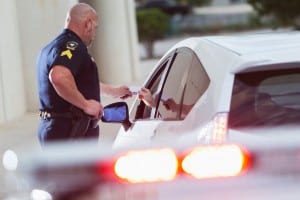The Textalyzer Ignites Controversy Between Safety and Privacy
 The legal team at Silverman, McDonald, & Friedman, wants to help you when you have been injured in a car accident that was the result of someone else’s negligence. We serve clients who live in and around Seaford, Wilmington, and Newark. You are invited to contact us for more information now.
The legal team at Silverman, McDonald, & Friedman, wants to help you when you have been injured in a car accident that was the result of someone else’s negligence. We serve clients who live in and around Seaford, Wilmington, and Newark. You are invited to contact us for more information now.
As a Delaware driver, you know that if a law enforcement officer suspects that you are under the influence of alcohol, they may pull you over and ask you a few questions to see if it seems like you may have been drinking and driving. The “textalyzer” is a device that is analogous to the breathalyzer, which can tell law enforcement whether a driver has been drinking alcohol, but instead it tells an officer whether you have been using your cell phone behind the wheel.
What had been an upcoming new technology might soon become another weapon in law enforcement’s available arsenal that they can use to fight distracted driving in the state of New York. Andrew Cuomo, the governor of New York, has directed his Governor’s Traffic Safety Committee to study the device and how it might impact personal privacy laws. Despite the ban on hand-held devices for drivers that is in place in 14 states and the District of Columbia, and the 47 states which ban texting while driving, people continue to flout the law and use their hand-held devices while driving. Trying to operate a mobile phone either to dial a number to make a voice call, or to read or reply to a text message distracts the driver’s attention away from the task of driving. In those split seconds when the driver thinks that they can concentrate on two things at once is when tragic events occur.
The challenge with the textalyzer device is that many people see it as a violation of privacy.
How does the textalyzer work?
A company called Cellebrite is developing the textalyzer technology that would allow an officer to connect the driver’s phone to the device, which would display all the activities that has taken place on the phone with a timestamp for each. The device measures screen swipes, which apps were activated, and it can distinguish between an incoming or outgoing phone call. While the device does not store the specifics about what a person texted, it can tell that the user accessed a specific app at a specific time. The technology is not yet fully developed, and Cellebrite engineer Lee Papathanasiou said in a story on NBC.com that the technology will be customized for each jurisdiction that uses it.
Who is against the textalyzer?
Rashida Richardson, legislative counsel for the New York Civil Liberties Union said in the NBC News piece, “Distracted driving is a serious concern, but this bill gives police power to take and search our phones after almost every fender-bender. This is a concern because our phones have some of our most personal and private information — so we’re certain that if this law is enforced as it is proposed, it will not only violate people’s privacy rights, but also civil liberties.”
Invasion of privacy might not be enough to stop the use of the device
In 2015, traffic fatalities in the U.S. reached a 50-year high, with a significant number of those crashes and fatalities being because of distracted driving.
Debbie Hersman, the head of the National Safety Council said, in a story on NPR.org, “The textalyzer is going to be a game-changer when it comes to handheld devices and potentially even in-vehicle systems. It will be the Breathalyzer of our electronics.”
The jurisdictions that want to use the technology must first pass laws before law enforcement can use the textalyzer when it becomes available. In New York, the legislation is working its way through committees while lawmakers in New Jersey, Tennessee and Chicago are also interested in using the device to encourage drivers to put down the phone and focus their attention on driving.
If you were injured in a car accident, Silverman, McDonald & Friedman can be a strong advocate on your behalf. Please call 302-888-2900 or fill out our contact form to schedule a free consultation with one of our car accident lawyers in Seaford, Newark or Wilmington today.

Attorney Jeffrey S. Friedman joined Silverman, McDonald & Friedman in 2001. He graduated from Widener University School of Law, and is admitted to practice law in Delaware and Pennsylvania, and in several Federal Circuit courts. He areas of concentration include auto accident and workers’ compensation cases. Read more about Attorney Friedman here.

